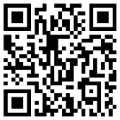Implementation of the STAD Model on Mobile Learning Applications to Improve Student Learning Outcomes at Vocational Schools in Malang
Abstract
Full Text:
PDFReferences
M. R. L. Alhafidz and A. Haryono, “Pengembangan mobile learning berbasis android sebagai media pembelajaran ekonomi,” J. Pendidik. Ekon., vol. 11, no. 2, pp. 118–124, 2018.
[M. Ally, Mobile learning: Transforming the delivery of education and training. Athabasca University Press, 2009.
I. A. D. Astuti, R. A. Sumarni, and D. L. Saraswati, “Pengembangan media pembelajaran fisika mobile learning berbasis android,” J. Penelit. Pengemb. Pendidik. Fis., vol. 3, no. 1, pp. 57–62, 2017.
S. Bidin and A. A. Ziden, “Adoption and application of mobile learning in the education industry,” Procedia-social Behav. Sci., vol. 90, pp. 720–729, 2013.
M. Mutmainna and A. F. Jafar, “Komparasi Hasil Belajar Fisika melalui Metode Discovery Learning dan Assignment and Recitation,” JPF (Jurnal Pendidik. Fis. Univ. Islam Negeri Alauddin Makassar, vol. 3, no. 1, pp. 46–51, 2015.
A. A. Cholid, H. Elmunsyah, and S. Patmanthara, “Pengembangan model web-based learning pada mata pelajaran jaringan dasar paket keahlian tkj pada smkn se-kota malang,” J. Pendidik. Teor. Penelitian, dan Pengemb., vol. 1, no. 5, pp. 961–970, 2016.
P. D. Sugiyono, Quantitative, qualitative, and R&D research methods. Bandung: Alfabeta, 2018.
R. Diani, “Pengembangan perangkat pembelajaran fisika berbasis pendidikan karakter dengan model problem-based instruction,” J. Ilm. Pendidik. Fis. Al-Biruni, vol. 4, no. 2, pp. 243–255, 2015.
G. Dwi, “Pengembangan Media Pembelajaran Berbasis Android berupa Buku Saku Digital Mata Pelajaran Kompetensi Dasar Akuntansi membuat Gambaran Umum Siklus Akuntansi Perusahaan Jasa di Kelas XI MAN 1 Yogyakarta,” Uneversitas Negeri Yogyakarta, 2014.
H. R. Kurniawan, H. Elmunsyah, and M. Muladi, “Perbandingan penerapan model pembelajaran project-based learning (PJBL) dan think pair share (TPS) berbantuan modul ajar terhadap kemandirian dan hasil belajar rancang bangun jaringan,” JP (Jurnal Pendidikan) Teor. Dan Prakt., vol. 3, no. 2, pp. 80–85, 2018.
H. Elmunsyah, “A national education policy-based ICT model for Indonesian vocational high schools (VHS),” Glob. J. Eng. Educ., vol. 16, no. 3, pp. 136–140, 2014.
DOI: http://dx.doi.org/10.17977/um010v5i12022p18-24
Refbacks
- There are currently no refbacks.
 | Letters in Information Technology Education (LITE) |

1.png)
1.png)
4.png)
1.png)
.png)
.png)

3.png)
1.png)
1.png)

3.jpg)